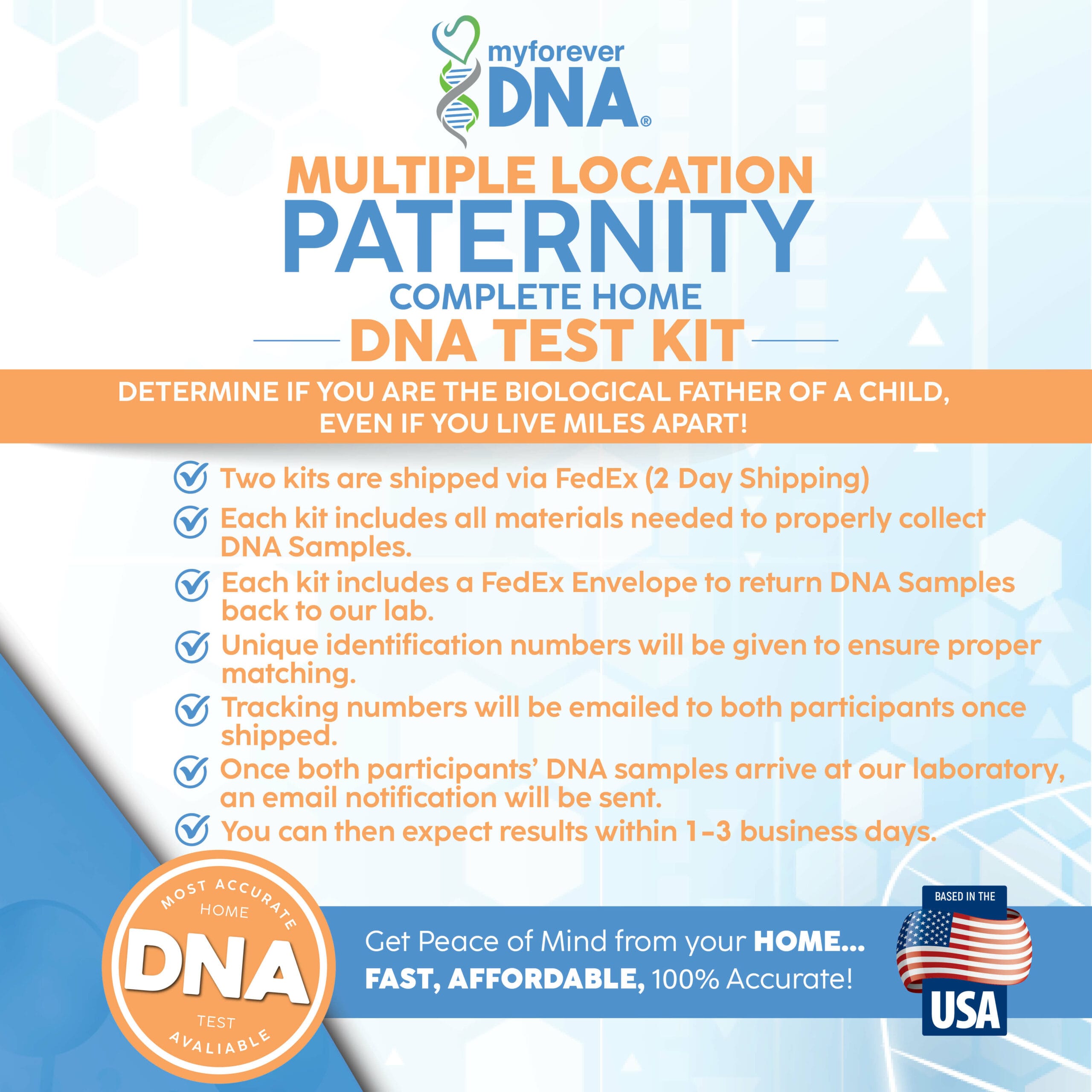Curious about your family history or need to confirm biological relationships? Sibling DNA tests offer an accurate and reliable way to determine paternity, even when the alleged father is absent. These tests analyze the DNA of siblings to reveal shared genetic markers, providing crucial insight into shared parentage.
Understanding Sibling DNA Tests: How Do They Work?
Just like a paternity test involving a father, sibling DNA tests analyze specific regions of DNA to identify matching patterns. Since siblings inherit half of their DNA from each parent, comparing their genetic profiles can reveal the probability of having the same father.
Types of Sibling DNA Tests: Choosing the Right Option
- Full Sibling vs. Half Sibling Tests: Full sibling tests determine the likelihood of two individuals sharing both parents, while half-sibling tests focus on sharing one parent, typically the father.
- Legal vs. At-Home Tests: Legal tests follow strict chain-of-custody procedures, making them admissible in court for matters like inheritance disputes or custody battles. At-home tests, while not legally binding, offer convenience and affordability for personal knowledge.
Decoding Accuracy: How Reliable Are Sibling DNA Tests?
Sibling DNA tests boast impressive accuracy rates, often exceeding 99% when determining full siblingship. Several factors influence the precision of these tests:
- Type of Test: Full sibling tests generally yield higher accuracy compared to half-sibling tests.
- Mother’s Participation: Including the mother’s DNA sample significantly increases accuracy, as it helps isolate the paternal DNA being compared.
- Number of Siblings Tested: Testing multiple siblings can strengthen the results and provide a more definitive answer.
- Laboratory Standards: Choosing an accredited laboratory with experienced scientists and stringent testing processes ensures reliable outcomes.
Beyond Family Ties: Why Choose Sibling DNA Testing?
Sibling DNA testing isn’t just for satisfying curiosity. Here are several reasons why individuals opt for this type of test:
- Confirming Paternity: When the alleged father is unavailable or unwilling to participate, a sibling DNA test offers a viable solution.
- Legal Matters: Test results can serve as evidence in legal proceedings concerning inheritance, child custody, or immigration claims.
- Genealogical Exploration: Confirming sibling relationships can help individuals piece together their family history and uncover unknown branches of their family tree.
- Medical Insights: Understanding sibling relationships can provide crucial information about shared genetic health risks, allowing for proactive healthcare decisions.
Navigating Your Sibling DNA Test: What to Expect
- Consult with a Reputable Lab: Start by researching and selecting an accredited laboratory with a proven track record of accuracy and reliability.
- Understand the Testing Process: Typically, a simple cheek swab is all it takes to collect DNA samples, which are then sent to the lab for analysis.
- Interpreting the Results: Results are often presented as a percentage indicating the likelihood of a sibling relationship. A genetic counselor can help interpret these results and provide guidance based on your specific situation.
Important Considerations:
- While sibling DNA tests are highly accurate, it’s essential to remember that no test can offer 100% certainty.
- Consider the potential emotional impact of the test results on yourself and your family members.
- Consult with a genetic counselor or healthcare professional to discuss any questions or concerns before and after testing.
Unlock the secrets held within your DNA and gain a deeper understanding of your family connections. Sibling DNA tests provide a powerful tool for unraveling paternity mysteries and revealing the intricate tapestry of your family’s story.
- Unveiling the Enigma: Mansoureh Khojasteh Bagherzadeh’s Public Appearances & Private Life in Iran - July 18, 2025
- Unveiling the Mystery: Mansoureh Khojasteh Bagherzadeh’s Husband: A Rare Glimpse into a Private Life - July 18, 2025
- Unveiling Masoud Khamenei’s Mother: Power, Influence, and Iran’s Future - July 18, 2025
















